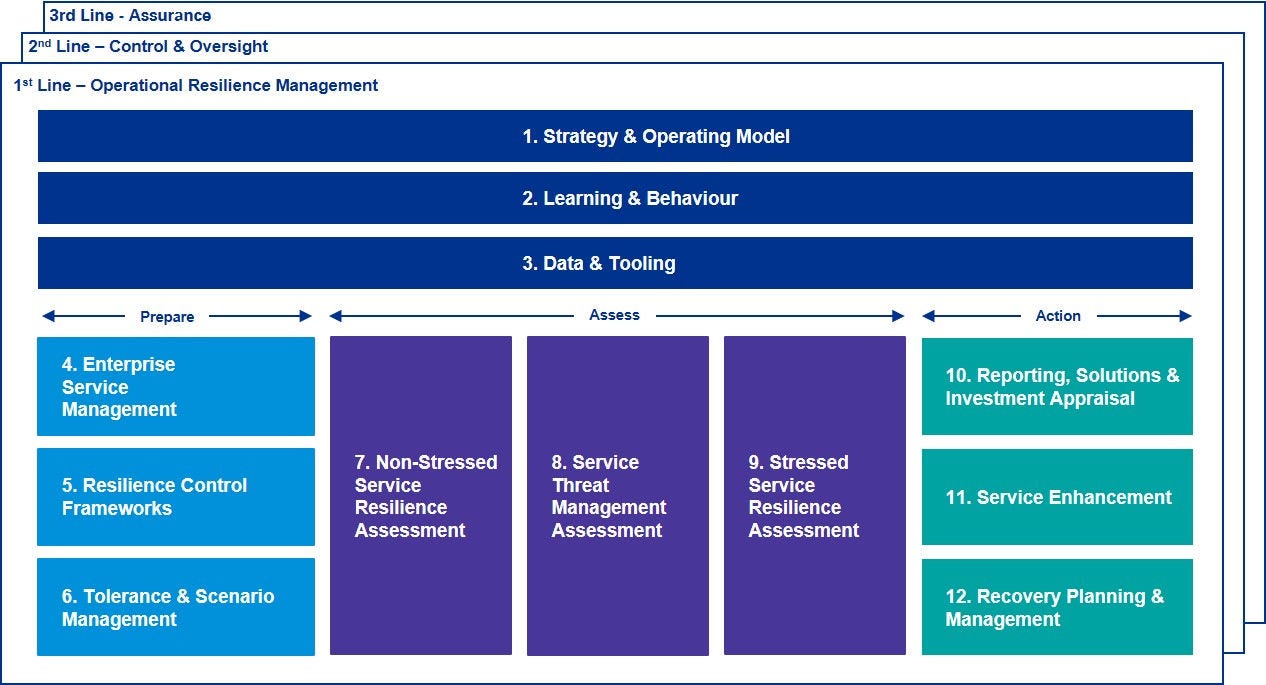Operational resilience has always been essential, however in today’s turbulent environment, it must be even more front of mind for boards and leadership.
Operational resilience is the ability to provide stability of business services amid disruption – whether that be a pandemic, cyber security breach or asset breakdown, or a more everyday occurrence such as key-person dependency. It is vital to the success of a business, to customers, to fellow market participants, and to financial market stability.
For these reasons, some industry regulators around the world, notably in UK financial services, are working to make operational resilience a regulatory requirement.
However, without clear leadership accountability for resilience, challenges can include:
- Planning the right resource investment and embedding resilience throughout the entire organization to protect service delivery
- Using data to identify and manage resilience vulnerabilities or gaps across people, processes, facilities, technology, third parties and data
- Demonstrating compliance with local regulatory requirements
- Moving from siloed and asset-centric business continuity plans towards a service-based approach
- Taking preventative action to reduce any disruption to the customer experience and maintain brand reputation
















